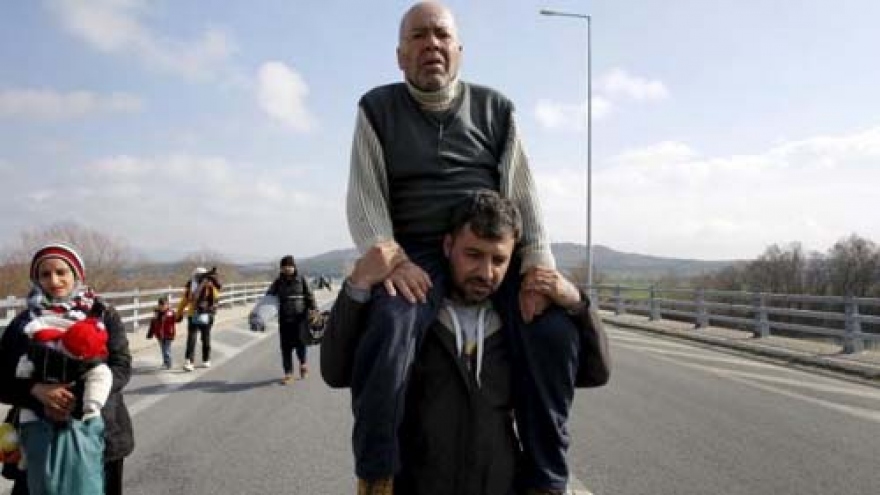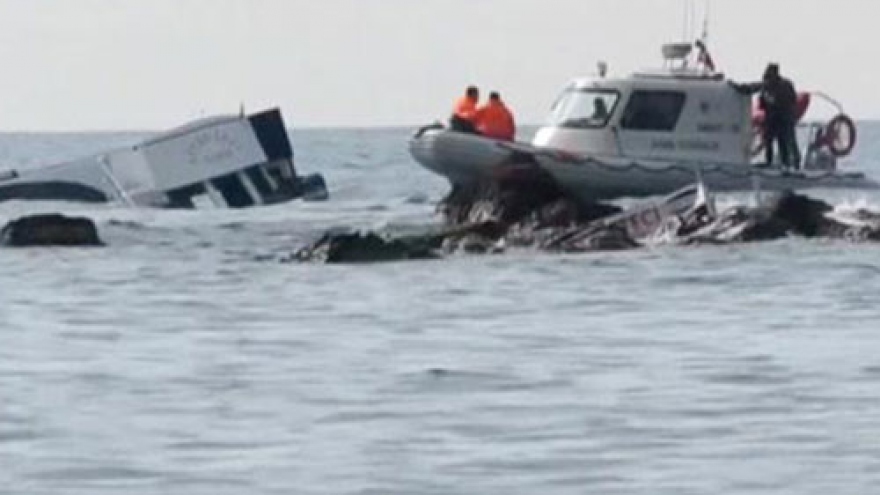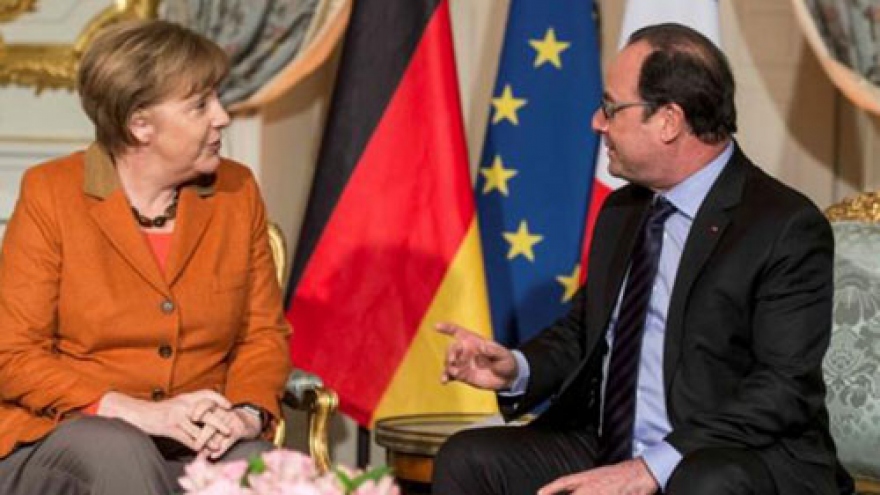Europe seen on cusp of new humanitarian crisis at Greece-Macedonia border
The build-up of thousands of migrants and refugees on Greece's northern borders is fast turning into a humanitarian disaster, the United Nations said on March 1 as the European Union prepared to offer more financial aid.
German Chancellor Angela Merkel said clashes at Greece's border with Macedonia on February 29 - when migrants battered down a gate and were tear-gassed - simply underlined the urgency with which the EU needed to act on the crisis.
But Austria - which last month limited the number of migrants it lets through to 3,200 a day - stuck to its position that it did not want to become an overcrowded waiting room for thousands wanting to make it further north.
Croatia, which is also on what is now the well-trodden migrants route northwards from Greece, said it might deploy its armed forces to help police control flows.
 |
The UN High Commissioner for Refugees (UNHCR) called for better planning and accommodation for at least 24,000 it said were stuck in Greece, including 8,500 at Idomeni.
"Europe is on the cusp of a largely self-induced humanitarian crisis," U.N. refugee agency spokesman Adrian Edwards told a news briefing.
Migrants have become stranded in Greece since Austria and other countries along the Balkans migration corridor imposed restrictions on their borders, limiting the numbers able to cross.
Police chiefs from Macedonia, Serbia, Croatia and Slovenia, meeting in Belgrade, agreed to improve the system of joint registration of refugees to unblock gridlocks in Greece.
The burgeoning crisis adds to last year's chaos when more than a million migrants and refugees arrived in the EU, many fleeing the war in Syria and walking from Turkey northwards.
Around 131,000 have reached the continent so far in 2016.



